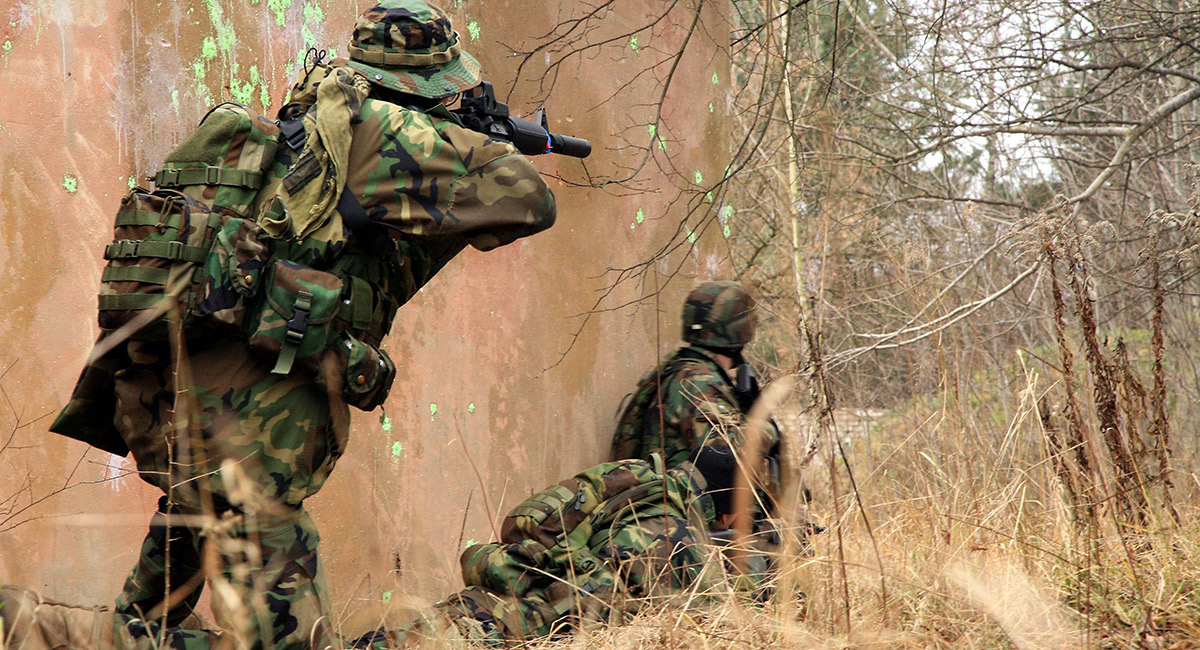Following the 9/11 attacks, almost 20 years ago, the United States witnessed one of the largest restructurings of government in its history and implemented a multitude of domestic and international policies aimed at combatting terrorism.
The cost has been overwhelming: By the end of fiscal year 2020, the taxpayers’ total commitment to war was an estimated $6.4 trillion. Over 7,000 U.S. military personnel have died in foreign military campaigns and hundreds of thousands of people in the Middle East were killed as a result of the conflicts in their countries.
But even this record fails to account for the full costs of the war on terror. These policies have directly fueled the expansion of far-right extremist groups and led to their progressive militarization, while drastically eroding our civil liberties.
How can this be so?
The war on terror has resulted in a sharp increase in military deployments—more than 5.4 million between 2001 and 2015. U.S. military personnel spent more than 1.5 million troop-years in Afghanistan alone. The number of enlisted military personnel, however, has remained relatively constant. This combination has led military officials to worry about meeting recruitment targets, and commanders have applied immense pressure on recruiters to comply.
The results have been predictable. After 9/11, the military allowed individuals to enlist who otherwise would have been rejected—including those with extremist views according to Matt Kennard’s, “Irregular Army: How the U.S. Military Recruited Neo Nazis, Gang Members and Criminals to Fight the War on Terror.” Servicemen who would have been dismissed were instead kept in uniform.
These individuals, armed with military training and sometimes combat experience, have taken these skills back to their extremist groups—or started new ones. Then they taught what they had learned to their fellow members.
Consider Chris Buckley, a now-reformed KKK member and veteran. He was able to directly transfer his military training to Klan members, teaching them “[to] use and conceal weapons, close-quarters fighting, surveillance, [and] secrecy.”
Other veterans, like former Florida National Guard member Brandon Russell, founded the neo-Nazi group Atomwaffen Division in 2016. The membership included at least three other veterans and three active-duty Marines, who were directly responsible for training other participants in firearms and hand-to-hand combat, as well as in recruiting.
In other cases, domestic extremist groups have explicitly pushed their members to join the military or recruit military members. Dennis Mahon, a white supremacist serving a 40-year prison sentence for a bombing, urged members of his organization to join the military to “learn as much as you can to improve munitions” and to focus on “sniping and explosives.”
The result of this greater integration of current and former military members into extremist groups has corresponded with an increase in the number of violent events involving far-right extremists. Comparing the 15 years before 9/11 to the 15 years after, the number of violent incidents committed by far-right extremists increased more than 94 percent—from 19 to 37 cases. The post-9/11 period’s fatality potential—the loss of life that would have occurred had all plots succeeded—was markedly greater than the earlier periods, though the overall numbers are small.
The increase in far-right extremist activity is concerning. Equally alarming, however, is how government policies effectively equipped these groups with the skills and tools needed to carry out their objectives more effectively. Moreover, in seeing the threat posed by far-right groups, officials have attempted to fix the problem—not by fixing the root cause—but instead by engaging in more intervention, often turning the tools of war—surveillance, weapons, and even torture—inward on innocent Americans, violating their civil liberties in the name of “combating terror.”
For 20 years, we’ve watched U.S. counterterrorism policy fail to achieve its stated objectives. Instead, these policies have cost hundreds of thousands of lives, destabilized millions and contributed to unrest and tyranny at home. What started as a campaign to rid the world of terrorism by intervening abroad has instead engendered extremism in our own backyard.









